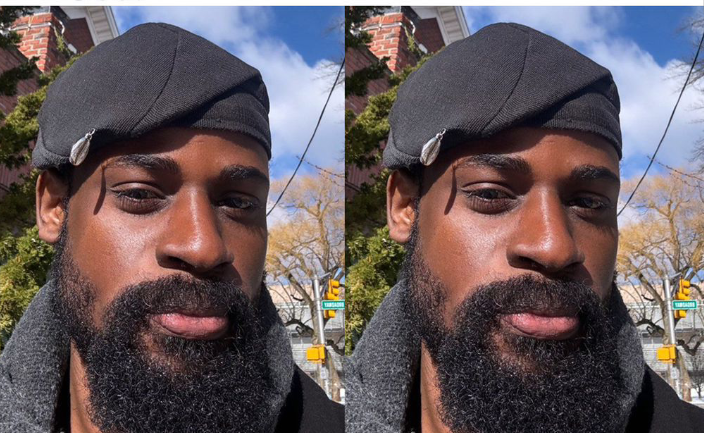
Jim Iyke vs. Barack Obama: Activist Israel Joe Sparks Heated Debate Over Single Motherhood and Responsibility

The Nigerian social space was thrown into heated controversy after veteran Nollywood actor Jim Iyke made a sweeping remark that seemed to cast doubt on the ability of single mothers to raise responsible male children, a statement that has now drawn the ire of activist and social commentator Comrade Israel Joe, who did not mince words in calling out what he described as a shallow, one-sided, and misleading perspective. The debate, which started from Jim Iyke’s controversial comments, has now snowballed into a much larger conversation about single motherhood, irresponsible fatherhood, and the social stigma often attached to families that do not conform to traditional two-parent structures. In a fiery response, Israel Joe questioned Jim Iyke’s moral authority to make such pronouncements, pointing to the examples of highly successful individuals raised by single mothers, including none other than Barack Obama, the former president of the United States of America, who not only rose to become the first Black president of the world’s most powerful nation but also became a global symbol of hope, resilience, and leadership.
According to Israel Joe, it is not just careless but deeply insensitive for any public figure to generalize that single mothers are incapable of raising responsible men. He argued that while society should indeed avoid glorifying single motherhood unnecessarily, the conversation must also acknowledge the failures of irresponsible fatherhood, which is often the reason many women find themselves single-handedly raising their children in the first place. In his words, some instances of single motherhood are products of mistakes, ignorance, or youthful decisions, others are intentional choices made by strong women who prefer to raise children outside toxic marriages, and yet others are situational, brought about by tragic events such as death or abandonment. To lump all single mothers into one basket of condemnation, according to him, is intellectually lazy and morally wrong.
The activist’s strong words were not without context, as he carefully dissected the deeper implications of Jim Iyke’s controversial comment. He noted that Nigeria as a society has often been quick to stigmatize single mothers while overlooking the failures of men who shirk their responsibilities as fathers. In doing so, society places the entire burden of shame on women while glorifying men who, by their own decisions or negligence, contributed to the very situation they condemn. Israel Joe’s argument was that if we must talk about single motherhood, then we must, at the same time, be willing to confront the ugly truth of irresponsible fatherhood, a societal plague that continues to destabilize homes and shatter children’s futures.
The activist also drew attention to Jim Iyke’s personal life, stating that as an “over-matured bachelor” who is yet to maintain a stable marital life himself, the actor may lack the moral compass to dictate who is capable of raising responsible men or not. With biting sarcasm, he posed the rhetorical question of whether Jim Iyke’s own unmarried status could be traced to being raised by a single mother, thereby highlighting the danger of using personal bias or limited experience as the yardstick to measure complex societal issues. In his response, Israel Joe insisted that if Jim Iyke made his statement within a narrow, small-context usage, then perhaps it was a case of poor articulation, but once such words are pushed into the public domain, they risk reinforcing harmful stereotypes against women who are already battling stigma, hardship, and discrimination while trying their best to raise their children.
The debate has stirred reactions across social media platforms, with many Nigerians weighing in on both sides of the argument. Some sympathized with Jim Iyke, suggesting that he was only trying to caution against the rising glamorization of single motherhood, especially in a society where young people may start to see it as a trendy lifestyle rather than a serious responsibility. Others, however, sided with Israel Joe, stressing that whatever caution was necessary should never be made at the expense of shaming hardworking mothers who sacrifice everything to raise children when the fathers are absent. The example of Barack Obama continues to dominate the conversation, as critics of Jim Iyke remind the public that the American leader, raised by his mother and grandparents after his father left, went on to demonstrate discipline, intelligence, and values that many children from two-parent homes fail to achieve.
Beyond Obama, Nigerians also pointed to countless local and global examples of successful men and women who were raised by single mothers and yet turned out not just responsible but exceptional. From musicians to business leaders, politicians, and activists, stories abound of single mothers who against all odds raised children who went on to change the world. To erase these realities with one broad stroke of generalized condemnation is, in the view of many commentators, both unfair and ignorant. What seems to sting most in this controversy is not just the statement itself but the fact that it came from a respected actor with a wide platform, whose words carry weight and influence over millions of fans. For Israel Joe and others who share his perspective, public figures must learn to wield their platforms with caution, especially when addressing sensitive social issues that affect real people’s lives.
As the debate continues, larger questions have emerged: What is the true role of fathers in preventing single motherhood? How does society balance the need to encourage family stability while still respecting and supporting women who find themselves raising children alone? And how can public discourse on single motherhood move beyond stigma and stereotypes into meaningful discussions that focus on solutions, empowerment, and shared responsibility? While Jim Iyke has not publicly clarified or retracted his controversial remark, the pushback from Israel Joe has ensured that the matter remains in the public spotlight.
In a society where conversations around family values, gender roles, and responsibility are often polarized, this incident has once again shown how easily a single statement can trigger national reflection on deeper social realities. Perhaps, as Israel Joe suggests, what Nigeria needs is not a “left-handed navigated circle” of shallow judgments but a holistic interrogation of social issues, one that recognizes both the dignity of single mothers and the failures of irresponsible fathers, while charting a path toward healthier family systems for the next generation.
At the heart of this storm lies a simple but powerful question: If Barack Obama, raised by a single mother, could become president of the United States, what moral ground does Jim Iyke—or anyone else for that matter—stand on to dismiss the efforts and potential of single mothers? Until that question is answered, the debate will linger as a reminder that the real measure of responsible parenting lies not in marital status but in the love, discipline, and values instilled in the next generation.


